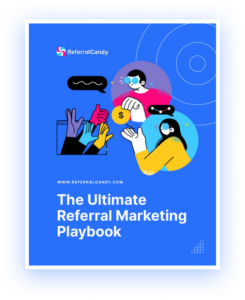Brand awareness next to nothing? We feel you. Perhaps it is time to seek some agency help for the right type of marketing. Small businesses frequently have amazing products or niche services but lack the know-how or financial abilities to create a cohesive and effective method to spread the word about their brand organically. Here’s what we suggest.
Understanding Marketing In Three Simple Steps
Assuming you’re a complete newbie at all this, the first question that has to be answered is “What is Marketing?”. Marketing is essentially a tool used to convince consumers that your product or service is better than anyone else and it is a professional form of persuasion.
The three goals for marketing are:
- Catching the attention of your intended audience
- Convincing them why they should choose your brand over a competitor’s
- Telling them how to obtain your product/service
Under the Marketing ‘umbrella’ as seen in the Elevate My Brand graphic below, there are many different components which quite frequently overlap. For any service you require for organic growth*, there is a matching agency for it – namely Branding, Public Relations, Digital/Social Media.
*Organic growth means a less hard-selling way of getting your brand out there as compared to the various advertising mediums.
Mr Jeffrey Wong, a marketing and public relations consultant for a multinational PR agency says: “Working with an agency offers businesses with additional layers of expertise, support and resources to help accelerate the brand-building process. More often than not, agency teams have experience in a similar industry and can leverage the best practices to help brands achieve their goals in a shorter time frame.”
How To Choose The Right Type Of Marketing Agency
So how do you know which route to take? Marketing no doubt is an important aspect of any company but we understand as a small business you have infinite needs but a finite amount of resources, hence the need to find the right fit from the get-go.
However, there is no longer a one-size-fits-all marketing solution. Jeffrey adds: “Many agencies are still playing catch-up to reinvent their fundamental offerings and understand what brands are looking for. For starters, digital strategies are a completely different ball game and require quite a drastically different skill set [compared to traditional PR, branding or a higher education seo company].”
We’ll help you decide on your route by painting these three scenarios.
1. I want immediate brand recognition
Scenario 1: Priya has decided to open a start-up selling clothing subscription boxes to working professionals. Subscribers will receive one box every month of the newest designs in-store from unique labels across the world. She wants to create an overall look and feel of the company from the fonts, colour schemes, and tone of voice. She has created a rough mood board on Pinterest but does not know how to take it further from there.
Advice: Branding is an integral process of creating an identity for a company. This conjures up an image of the brand instantly in the consumer’s mind when done correctly. For example, think of Krispy Kreme: you get green polka dots and glazed doughnuts immediately. Check out the example mood board below:
A branding agency does the job of a devil’s advocate by providing a third-party perspective which can help set the foundation for the rest of your marketing efforts. This gives potential customers a consistent tone and style that they can associate with your company for the rest of its existence.
2. I want more people to hear of my brand
Scenario 2: Sam is a small business owner that has just started up his all-day brunch café. He is located outside of the city centre as the rental was cheaper and he needs help getting the word out about his café to increase footfall during mealtimes. He has a limited budget but needs help.
Advice: As a PR and media practitioner myself for almost the last decade, I would advise Sam to set up a meeting with PR agencies that specialise in consumer/F&B brands. These companies would be able to best advise a strategy that will increase visibility both in the media and on social media through engagements and news pitching. Essentially, the job of the PR agency is to get you coverage for free – the only cost would be the agency fees and product cost for media or influencer reviews.
Founder of Maison 21G – a French bespoke perfumery with global shipping and plans to open more boutiques in South Korea, Australia, and France – Ms Johanna Monange hired a public relations agency in 2019 to introduce the French concept of tailor-made perfumes to the Asian market.
She says: “We believe that word of mouth is the best advertising to grow a brand sustainably. As a start-up business, we had to get the word out about us quickly but also make sure we take a quality approach and find people who genuinely believe in the brand and want to support us. All reviews about us are real as we give people the product to test and convince them of its high quality. It is the best way to explain our products to potential customers.”
3. I want to grow my social media pages
Scenario 3: Lily works for a heritage artisan leatherworks company that has been around for the last two centuries and the brand has recently started its Facebook and Instagram page. Lily is trained in traditional marketing and has tried boosting her posts to gain more views, but it does not seem to translate to sales. Her superiors are not happy with the sunk cost of paying for social media with little to no return on investment (ROI).
Advice: Social Media is the newest of all the mediums and it is by far the most prolific. With algorithms changing with each update, it can be tough to harness this necessary evil for small businesses without a large brand name or celebrity status attached to it. Lily should look into digital and social media agencies that would enable her brand to cut through the noise and shine. These seasoned professionals can provide counsel regarding details ranging from copy to layout, social media trends, statistics on performance, reporting and more.
Most social media agencies may also have partner influencer agencies that can sort out any paid engagements with suitable influencers to garner more hype and buzz around your brand. Both agencies will be able to provide you with a suite of analytic tools to ensure the best content/influencer profile for maximum reach.
Can’t I do this by myself?

To quote Jonathan Van Ness from Queer Eye, “Just because you Ameri-CAN doesn’t mean you Ameri-SHOULD”. Unless you’ve come from an agency background and can undertake some aspects on your own, it is going to result in wasted resources and too much trial and error.
Taking it in-house is an option if you hire someone with the appropriate background to handle the company’s needs. For example, Maison 21G has since undertaken its PR efforts in-house after their agency contract and they have collaborated with media and influencers for their new store.
Another option is to go with a freelancer, however, there is a caveat. Mr Garry Moss, an industry professional who currently heads the Marketing & Communications at Serangoon Gardens Country Club in Singapore advises: “One would already need to have marketing expertise in-house to deal with a freelancer as they perform mostly on a project basis and may not have holistic control over the full brand strategy. This means that they may not be able to make necessary recommendations along the way. As a small business, you would want to minimise overhead costs as much as possible, thus outsourcing your marketing to an agency would be a good way to start as you’d be getting a wealth of experience, for a similar investment one would have for in-house marketing staff.”
Other Frequently Asked Questions for Small Businesses
After looking through all the options, you’ve decided to meet with the required agency. What should you ask? Here are some nuggets to chew on:
- How much budget should I set aside for the campaign? – It depends on the scope of work. Agencies can charge anywhere from $3000 to $5000 per month for a campaign.
- How long does a typical campaign take? – This also depends on the scope of work, but normally it takes about three months to see results. From there you can decide either midway to terminate the campaign or finish up and convert to a retainer which lasts anywhere from six months to a year. Early termination of campaigns come with either a notice period or penalty fees, so read your contract. Sometimes, it even makes sense to take it one step further and use your own contract template. You can easily find a first version online in one of the existing contract libraries. Afterwards, you should optimize it together with your legal team and use a contract management tool to maintain your pool of contracts.
- Should I keep an agency on a retainer – You can choose to discontinue services after the contract, but the onus is on you to sustain the efforts. Many companies drop the ball after the contract ends which undoes all the work.
All in all, adequate research and understanding the needs of your brand would help you select the right agency for a small business. Take your time and meet with a myriad of agencies, hone those negotiation skills, breathe some new life into your enterprise with professional help, AND get what you pay for.




